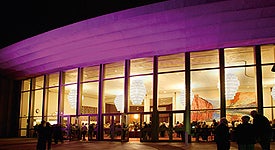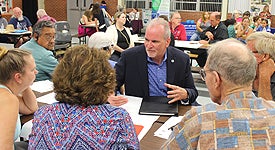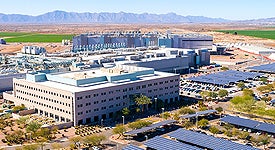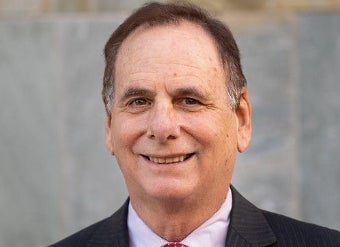The success or failure of many projects can be traced back to how well the utility coordination is handled during the design phase of the project. As many changes to what a project may or may not be able to become can be dictated by utility company standards, specifications and requirements, it is important to include all potential utility companies early in a project's design.
Relaxed Planning and Zoning requirements such as the ability to build to the edge of a parcel does not relieve a developer of the requirement to allow space on that property for important electrical equipment such as switch cabinets, transformers, fuse cabinets, capacitor banks, and even the safety and work zone clearance space required around those cabinets.
The Public Works & Utilities and Development Services Departments work closely to coordinate plan review activities for subdivisions, new developments, and capital projects. Private developers, utility companies, and design consultants working on City Capital Improvement Program (CIP) projects are responsible for coordinating with the utility companies.
The Telecommunications & Utility Franchise Division (TUF) staff participates in the Arizona Utility Coordinating Committee (AUCC) as well as in various joint utility meetings to help facilitate project success through best practices, oversight and occasional assistance to project designers when needed.
It is highly recommended that developers that do not have utility coordination experts already working for them hire a utility coordination consulting firm to aid with their project. The City of Chandler generally follows the American Public Works Association (APWA) guidelines outlined in the AUCC's Public Improvement Project Guide (PIPG) and highly recommends that our other regional partners, utility companies and developers do as well.



